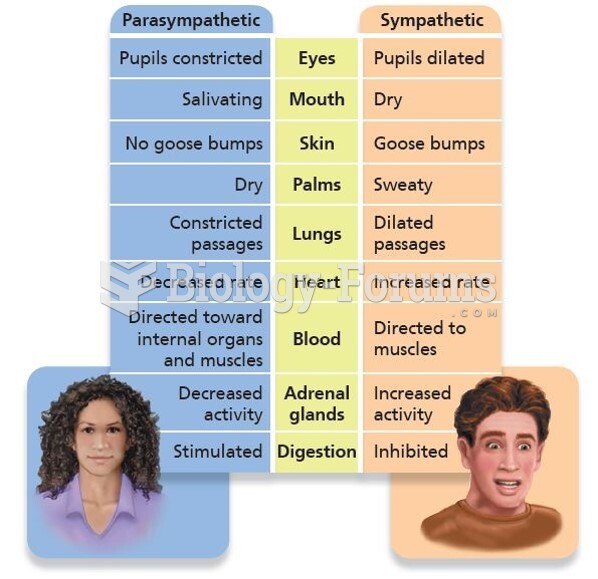|
|
|
The first oncogene was discovered in 1970 and was termed SRC (pronounced "SARK").
Women are 50% to 75% more likely than men to experience an adverse drug reaction.
For about 100 years, scientists thought that peptic ulcers were caused by stress, spicy food, and alcohol. Later, researchers added stomach acid to the list of causes and began treating ulcers with antacids. Now it is known that peptic ulcers are predominantly caused by Helicobacter pylori, a spiral-shaped bacterium that normally exist in the stomach.
Increased intake of vitamin D has been shown to reduce fractures up to 25% in older people.
Parkinson's disease is both chronic and progressive. This means that it persists over a long period of time and that its symptoms grow worse over time.







